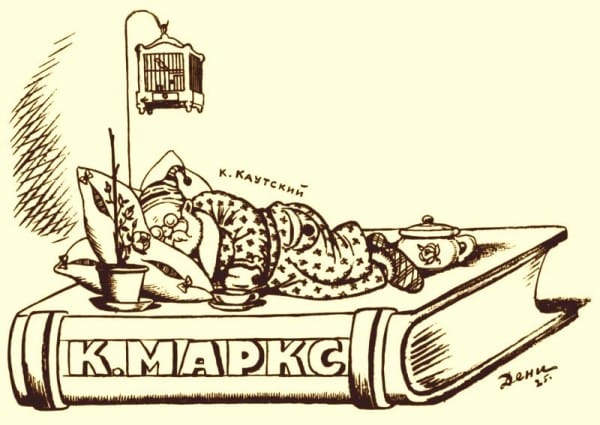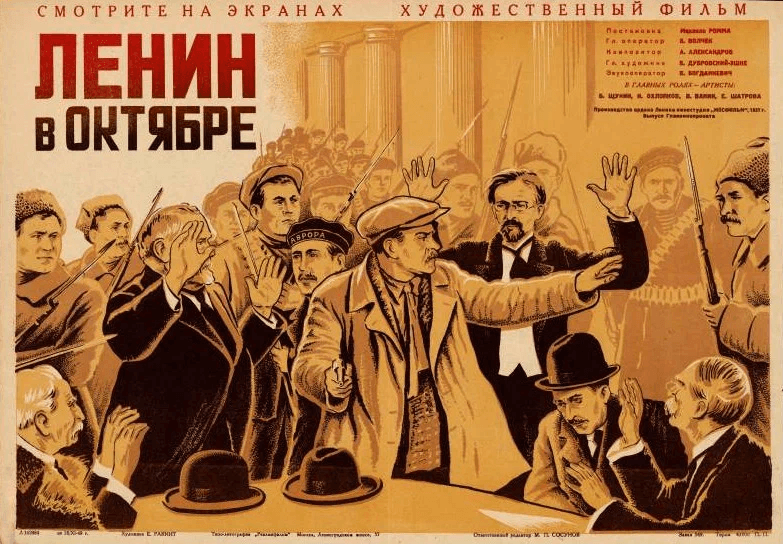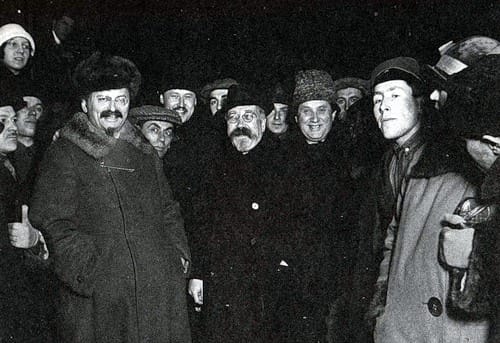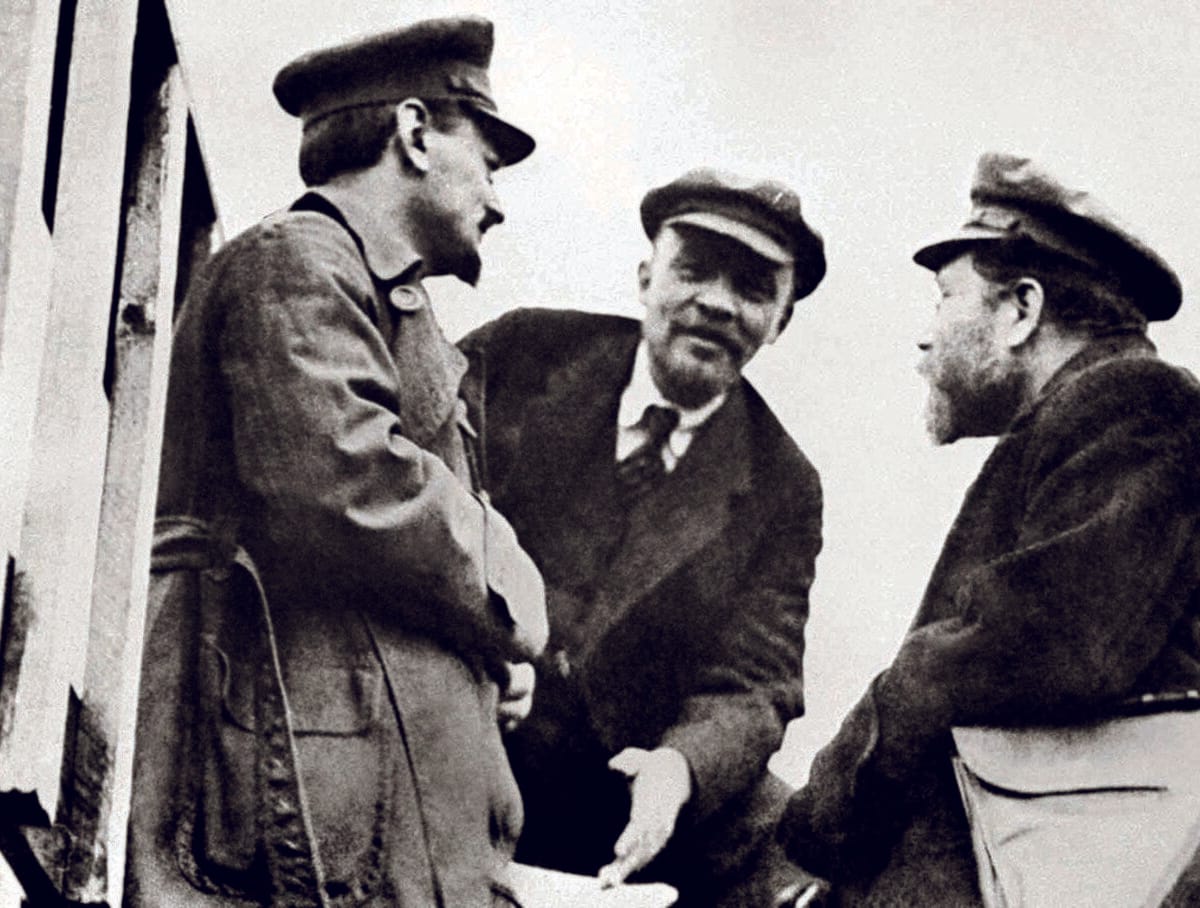Vladimir Lenin is often cited as the author of the expression “political prostitute.” We decided to find out whether he really used this phrase to define the changing political position of certain figures.
References to Lenin’s authorship can be found in newspaper articles and blogs. Thus, politician and journalist Maxim Shevchenko in interview Kommersant FM radio claimed that Lenin called the Social Democrats political prostitutes. Mentioned Lenin's authorship in the newspaper "Tomorrow“and its editor-in-chief Alexander Prokhanov: “Lenin called Trotsky a political prostitute.” This attribution also occurs on social networks. In the community in "VKontakte”, created to support the communist candidate Pavel Grudinin, a quote allegedly from Lenin reinforces criticism of opponents. Also this expression with reference to Lenin comes across in LiveJournal and in Ukrainian media, for example in “Ukrainian truth" and on the website "Commander-in-Chief"
Oddly enough, the phrase “political prostitute” does not appear in Lenin’s works and published speeches. However, he often calls his opponents prostitutes, but without the definition of “political.” For example, in article 1905 “Two Tactics of Social Democracy in the Democratic Revolution” the following quotation appears: “We are present at a highly instructive and highly comic spectacle. The prostitutes of bourgeois liberalism are trying to put on the toga of revolutionism.”
Another famous article, already from 1915, “The Collapse of the Second International,” is replete with references to prostitution. In it, Lenin attacks the European Social Democrats who supported the war. And the main target of his criticism is one of the most prominent representatives of German Social Democrats, Karl Kautsky. “Kautsky brought Marxism to unprecedented prostitution,” writes Lenin. This word appears several more times in the text. In addition, Lenin cites the opinions of his German comrades: “Franz Mehring and Rosa Luxemburg are quite right in calling Kautsky a prostitute for this.”

The words “political prostitute” were not spoken by the real Lenin, but by the cinematic one. In 1937, on the occasion of the 20th anniversary of the revolution, Mikhail Romm’s film “Lenin in October” was released. The first part of the film is devoted to preparations for an armed uprising. In one of the episodes, newspapers are brought to Lenin (actor Boris Shchukin), and he sees an article signed by one of the Bolshevik leaders, Kamenev.
Lenin addresses the worker Vasily (played by Nikolai Okhlopkov) with a fiery tirade: “What meanness, what immeasurable meanness! Where are the limits to shamelessness? Comrade Vasily, look how these saints, these political prostitutes betrayed us!”

This episode is quite accurate: Lev Kamenev and Grigory Zinoviev really did not support the idea of an armed uprising, and Kamenev published an article “On the Current Moment” in the newspaper “New Life”. After this, both of them almost excluded from the Party Central Committee. However, there is no documentary evidence that Lenin called his comrades political prostitutes, neither in his essays, nor, for example, in memoirs Leon Trotsky.
But in 1937, when the film “Lenin in October” was released, an attack on Kamenev and Zinoviev was not even desirable, but obligatory. Having received full power, Stalin hastened to get rid of the party opposition. In 1934, Kamenev and Zinoviev were arrested, and in 1936 accused in the creation of the Trotskyist-Zinovievist terrorist center and was shot.

Even earlier than the film “Lenin in October”, the propaganda cliché “Trotsky is a political prostitute” appeared. The first mention of Trotsky next to this unflattering definition occurs in 1934, in the March issue of the magazine “Under the Banner of Marxism.” In the article “Social-fascist and fascist “regulation” of capitalism,” Leon Trotsky is mentioned in passing, along with the objectionable German communist oppositionist August Thalheimer: “It is not without reason that such political prostitutes as Trotsky and Thalheimer protested against the Bolshevik, allegedly “slanderous” characterization of modern social democrats as social fascists.”
It was not Lenin who came up with calling political enemies prostitutes either. He himself in “The Collapse of the Second International” leads The German equivalent of this expression is: “Mädchen für alle,” that is, literally, “girls for everyone.” This is what opponents in the Social Democratic movement called each other. Well, an exact example of the expression “political prostitutes” is found even earlier - and not among the Social Democrats, but among the conservative publicist and philosopher Konstantin Leontyev. IN article 1888 “National Policy as a Weapon of World Revolution” he defines Italian foreign policy in exactly this way: “Italy can't do not try to convince everyone that it is, in fact, also a great power; can't to abandon the role of a political prostitute, which she, clinging everywhere to the strongest, has become accustomed to playing since the time of this even seemingly disgusting Cavour, a count by rank, a boor by his political tastes.”
Thus, there is no documentary evidence that Lenin ever uttered the phrase “political prostitute.” And the most early the mention of this phrase, which we managed to find, belongs to the pen of the Russian philosopher Konstantin Leontyev.
Cover photo: Trotsky, Lenin and Kamenev. 1919 Wikimedia Commons
Incorrect quote attribution
If you find a spelling or grammatical error, please let us know by highlighting the error text and clicking Ctrl+Enter.






